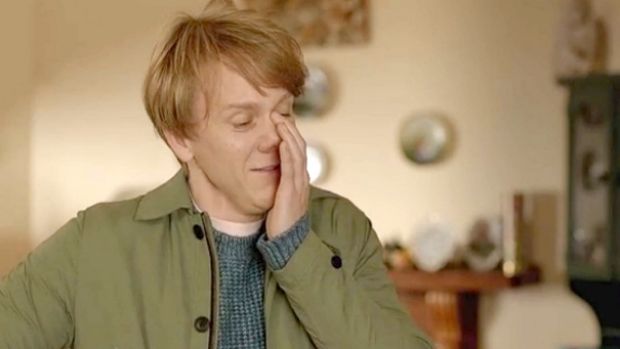Please Like Me was the little show that could, even if at times it seemed the ABC was determined to ensure it could not.
More Trailers Videos
Trailer: Please Like Me (Season 4)
As Josh faces an empty house, coupled-up friends and a flagging love life that even a threesome can't seem to fix, he may also have to face the idea that it's time to grow up.
For despite the critical accolades and the numerous awards that came its way, it often appeared the ABC had no idea what to do with the show it had commissioned, bumping this excellent dramatic comedy around channels, nights and timeslots like an unwanted child being shunted between foster homes, effectively condemning it to a life of unrealised potential.
Inevitably, it struggled to find a sizeable audience, but those who watched it did so loyally and with great passion. And, increasingly, they have done so around the globe.
When star and creator Josh Thomas tweeted to his 366,000 followers on Friday that the show was over, the news was met with an outpouring of gratitude and grief as fans acknowledged how much the show had meant to them, and how much – despite respecting his decision – they wished it wasn't so.
Thomas said he and the show's other producers had called time after four seasons and 32 episodes "because we are really happy with what we've made and feel like it is complete".
Talking to Fairfax Media, producer Todd Abbott added that while it was hard "to let go" of a show they loved so much, "by the end of season four it felt like so many of the storylines that started way back in season one had been resolved, and to go back to that well and attempt to drink from it one more time might have been dangerous".
But the truth is it's a minor miracle Please Like Me ever made it as far as it did.

It debuted on ABC2 on February 28, 2013 with a double episode that averaged 176,000 across the hour. That was a long way behind the multichannel's perennial top performer, Peppa Pig, which was watched by 286,000 the same day.
Please Like Me had originally been envisaged as a show for the ABC's main channel, and a slot among its Wednesday night comedy line-up seemed the logical home for it. But at some point, and for reasons that were never made entirely clear, the broadcaster decided to put it on its secondary channel instead, where it was guaranteed to struggle to attract a large audience.

That fuelled conspiracy theories about Aunty being scared off by all the gay sex, though Abbott insists that wasn't the case.
Although it's true that it was "always the understanding that it would be on the main channel" while the show was in development, Abbott says the shift to ABC2 made sense in terms of the likely audience for the show and the ABC's strategy at the time of developing ABC2 as a home of youth-oriented programming.

"They were pushing for it to be a destination channel for under 30s, and a show about a guy turning 21 and hanging out with his friends seemed right for that channel," he says. "I think the suggestion that they were scared of the gay sex was a bit of a beat-up. There wasn't actually a lot of sex in season one, they knew what it was going to be, so I don't think it was that. I just think they thought it wasn't as broadly appealing as they'd hoped in terms of demographics."
There was never any pressure from the ABC to tone down the sexual content, he insists, no hint that it should be, perhaps, a little less gay.

"They've actually been brilliantly supportive along the way. It hasn't been setting any ratings records, but they've been very vocal about it. With the gay sex scenes, their view was that if they were happening with a heterosexual couple nobody would bat an eyelid, so it would be hypocritical for them to have an issue with them just because they were gay."
It's hard not to conclude from this that there were plenty of people in the broadcaster who liked the idea of making a show like Please Like Me, but fewer who felt comfortable with the idea of actually showing it.

Eventually, though, all those five-star reviews and industry accolades made it impossible to keep Please Like Me in the naughty corner, and after two seasons on ABC2 the show was moved to the main channel. It still struggled for numbers, averaging no more than the mid-200,000s (overnight, five mainland capital cities), but it was a big performer on iview, attracting younger viewers who rarely watched broadcast television. A spokeswoman for the ABC said on Friday the four seasons have collectively racked up 4.38 million plays on iview to date (the show is still available on the platform).
But foreign audiences are what really saved Please Like Me. The show was sold to broadcasters in around a dozen territories. It also streams on Hulu in the US, Amazon in the UK and Ireland, and Netflix in more than 80 other countries, including Mexico and Brazil.
The key moment came in July 2013, when the show was picked up by new US cable channel Pivot.
Pivot initially wanted to remake it with Thomas and an American supporting cast, but quickly decided the show would translate as it stood for its younger, more outward-looking audience.
In fact, Please Like Me became Pivot's flagship offering. The channel ran a marketing campaign that placed Thomas's face on buses all over Los Angeles, and on its first night launched with a binge session of season one. Pivot also became the majority funder of the show from season two onwards.
But in August last year, Pivot announced it was folding.
That was a significant factor in bringing Please Like Me to an end, but not the only one.
"There were ways we could have done more," says Abbott. "We were investigating, and we could have got it funded. But Pivot closing gave us a chance to sit back and assess, to close the book on it and be satisfied with where we had taken the storylines."
As Thomas said in his announcement on Friday, those storylines had at times been "intensely personal", as the show "recreate[d] the most intimate moments of my life and [laid] them out for anyone to watch".
It is perhaps stating the bleeding obvious to observe that a show whose most recent season opened with a gay threesome was never going to be a mass hit. But the audience that did find it knew they had discovered something special – brave television that was funny and warm and true. That's a rarity in broadcast TV anywhere, but in Australia it's close to unique.
Please Like Me may have had the wisdom and decency to quit while still on top (so to speak), but fans have every right to lament its passing.
It was truly one out of the box.
Karl Quinn is on facebook at karlquinnjournalist and on twitter @karlkwin

















3 comments
New User? Sign up